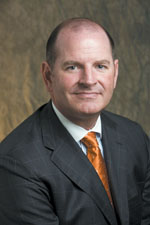Information Sharing Is Change We Really Can Believe In
 |
January weather in
Each inauguration brings about change. But this year, there is an almost palpable feeling that it is a time of change. For more than a year, the mantra on the presidential campaign has been change.
This is probably a good thing. Everyone should be concerned when the approval percentages for the president—and Congress—wallow in the 20s. People feel detached, almost alienated, from their government. What has not been fully defined is what change will mean once it makes its way through the
There are several reasons for hope, and President-elect Obama comes to
Competition is pressing the government as well. Agencies are not compared to other agencies, but increasingly, their successes—or failures—are compared to everybody else’s. Some real opportunities ahead can alter the way the government has done business—and for the better.
One is the realization that information is power. We always have understood this to a certain degree, yet government was famous for treating information as if it were more powerful if kept secret. Increasingly, we are learning that all of us are more powerful than each of us individually—and that information only becomes truly powerful when it is shared. The military has been a leader in this concept with its network-centric operations. At the heart of network centricity is the idea that information is an essential weapon in the military’s arsenal and that providing the right information to the right people at the right time is mission critical.
A second opportunity is the changing government workforce. The so-called retirement tsunami already has started to take place as long-time career federal workers have decided they do not really need to justify their value to yet another set of political appointees. There are very real concerns about the expertise that goes out the door with them—the real lessons learned that can be lost too easily. But there also are opportunities: a fresh look at old problems.
I also am hopeful about the next generation of government workers. In many ways, the outgoing and the incoming generations of federal workers are cut from the same cloth. Many of those now pondering retirement chose public service in part because they were touched by a young president, John F. Kennedy. They were intrigued by the important challenges ahead, invigorated by the mission of government and spurred by a desire to help others. But the incoming generation also is a unique group. Increasingly its members are “born digital.” They are, and always have been, hyper-connected. They do not remember when phones had cords. They also are natural information sharers.
The third opportunity is the availability of tools to make information sharing much easier. Among the scores of wonderful examples comes from the Alabama Department of Homeland Security and its Virtual Alabama program, which provides first responders with situational awareness by tapping into data that already exists. Virtual
Another example comes from
Real challenges lie ahead, but I am optimistic. My optimism comes not because of any single person but because of the wisdom of all of us and these tools that make it possible for us to tap into the wealth of intelligence.
Christopher J. Dorobek is the co-anchor of The Daily Debrief with Chris Dorobek and Amy Morris on Washington, D.C.’s Federal News Radio 1500 AM.
To comment on this article, see "The Wisdom of All of Us" on SIGNAL Scape.




Comments